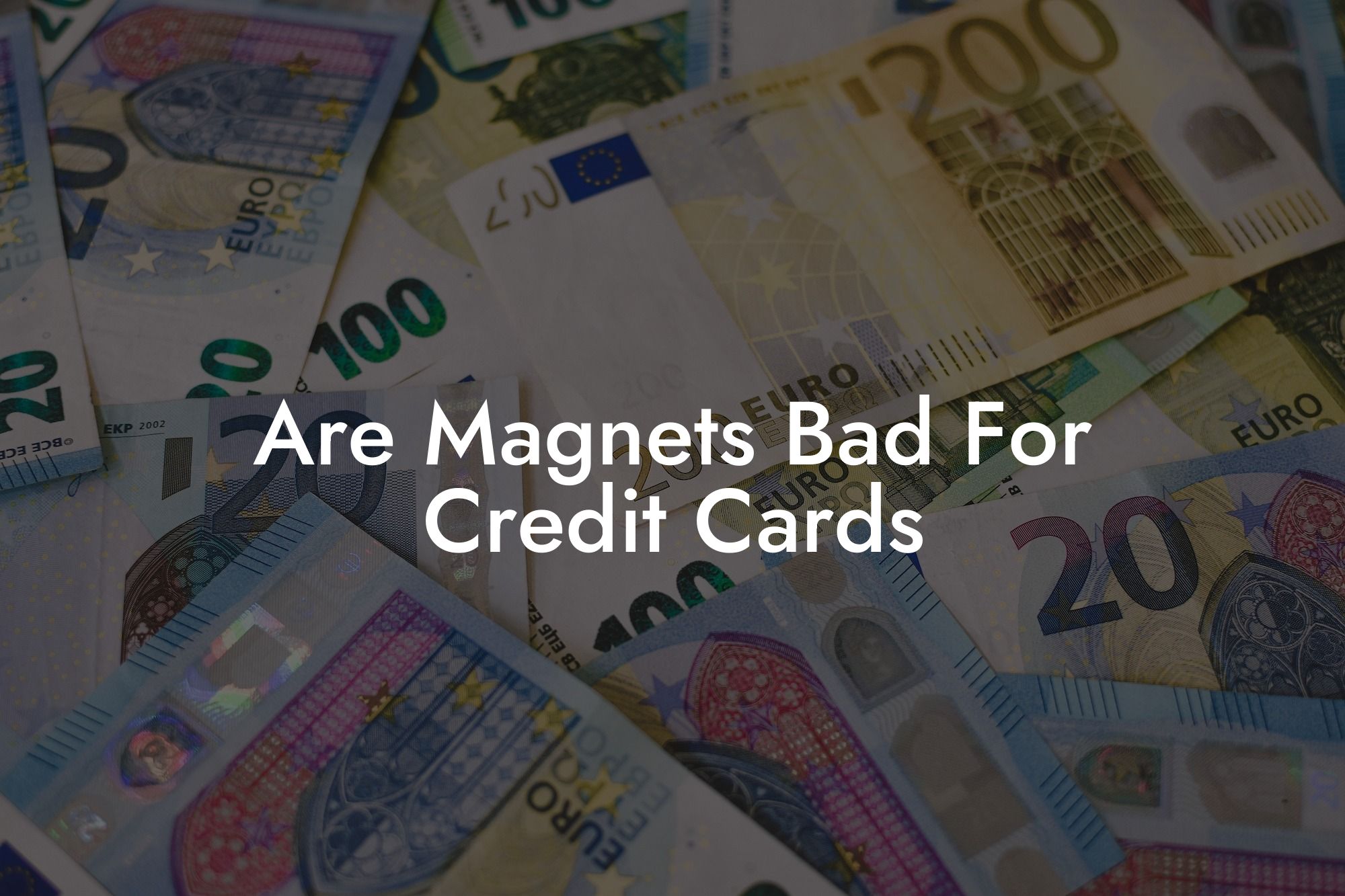We've all heard the horror stories. Someone accidentally places a magnet near their wallet, and just like that, all their credit cards are wiped. Panic ensues as they can no longer make purchases or access their accounts. But are magnets truly the villains they're made out to be? Are they really bad for credit cards? In this engaging Flik Eco blog post, we will delve into the truth behind magnetism and credit cards and explore the reality of these potential pitfalls. Keep reading to discover how to protect your precious plastic and financial well-being.
Quick Links to Useful Sections
Are Magnets Bad For Credit Cards Table of Contents
Understanding Credit Card Magnetic Strips
The magnetic strip on the back of your credit card, also known as the magstripe, contains vital information about your account. This includes your account number, expiration date, and more. The strip is made from small magnetic particles that store your data within a specific magnetic field.
The Effects of Magnets on Magnetic Strips
In general, when a strong magnet (usually with a strength of 1,000 gauss or higher) is placed near your credit card's magnetic strip, it can potentially scramble or alter the magnetic field, rendering your card unreadable by card readers. However, the truth is that the threat of magnets wiping out your credit card's data has been greatly exaggerated.
Many everyday magnets that we encounter, such as fridge magnets, aren't strong enough to cause any significant damage to your card. It would take a much stronger magnet, such as a neodymium magnet or other rare earth magnets, to truly affect the magnetic strip. However, prolonged exposure to a stronger magnet could still cause the magnetic strip to degrade or become unreadable over time.
Maintaining Your Credit Card's Health
Despite the decreased risk from everyday magnets, it's still essential to take care of your credit cards to ensure they function properly.
Keep Them Away from Strong Magnets
As a rule of thumb, avoid placing your cards next to powerful magnets or electronic devices with built-in magnets, such as speakers. Even though the risk is small, it's best to avoid potential mishaps by keeping your credit cards away from strong magnetic fields.
Protect Your Card from Physical Damage
Beyond potential magnet damage, one of the most common reasons credit cards become unreadable is physical damage. Scratches or bendings can affect the readability of the magnetic strip. To prevent this type of damage, store your cards in a protective wallet or cardholder that shields them from impact and wear and tear.
Monitor Your Accounts
Finally, keep a close eye on your accounts for any unusual activity. Your card doesn't need to be physically damaged for someone to steal your information. Be vigilant and report any suspicious charges to your bank.
Are Magnets Bad For Credit Cards Example:
Imagine you've come back from a long day of shopping with all your bags in hand. While you're unpacking your purchases, you absentmindedly place your wallet on the kitchen counter where a few of your favorite fridge magnets reside. After realizing your error an hour later, you panic, wondering whether your credit cards are now useless.
Thankfully, after putting your knowledge from Flik Eco's blog post to the test, you find that your cards are functioning well. The everyday magnets in your kitchen were not strong enough to cause significant damage to your cards, and you learned the importance of protecting them from stronger magnets or potential physical damage in the future.
We hope this article has cleared up some of the misunderstandings surrounding credit cards and magnets. So, the next time you panic after accidentally placing your wallet next to a fridge magnet, take a deep breath, and remember the insights shared in this guide. The truth is, magnets are not as bad for your credit card as the myths suggest.
Flik Eco has a wealth of knowledge on personal finance, so we encourage you to share this article with friends and family who may benefit from understanding more about credit card care. And while you're at it, why not explore even more essential guides and expert advice here on Flik Eco?













